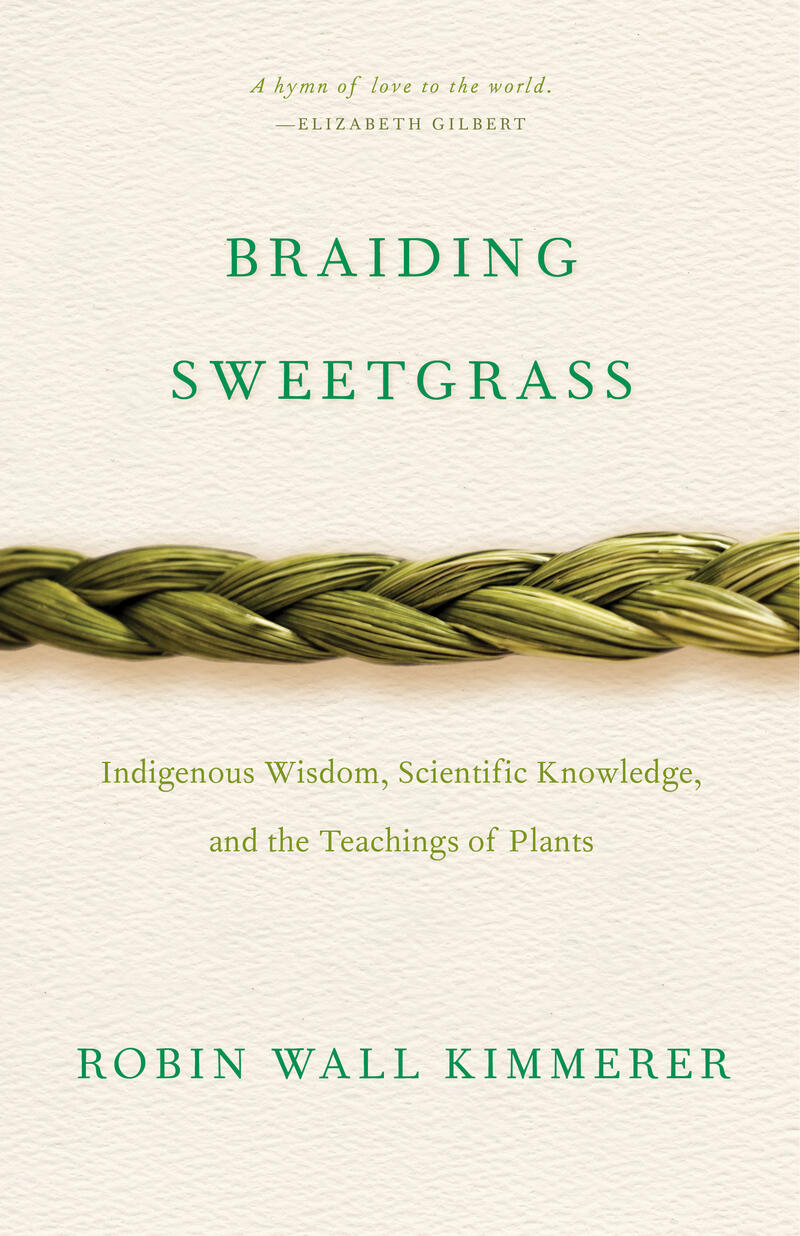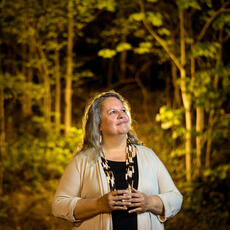5 Reasons to Teach This Book—Braiding Sweetgrass: Indigenous Wisdom, Scientific Knowledge, and the Teachings of Plants
Happy new year to you and happy fortieth anniversary year to all of us here at Milkweed! This year of blog content will seek to highlight what glows about the past, present, and future here at Milkweed, and there’s no more fitting space for us to begin than with a celebration of Robin Wall Kimmerer’s Braiding Sweetgrass: Indigenous Wisdom, Scientific Knowledge, and the Teachings of Plants!
Since its release in 2014, Braiding Sweetgrass has epitomized our mission of publishing and supporting superb work that is deeply in conversation with our natural world. With over 300,000 copies sold, Braiding Sweetgrass was one of the first Milkweed books I read, and it has been that for countless others. In this month’s 5 Reasons to Teach This Book, we offer many reasons to teach it from these three educators.

AIMEE CREE DUNN, Northern Michigan University
“I’ve been using Braiding Sweetgrass since it was published. Time and time again students tell me how much they love the book. I think much of that has to do with how Kimmerer approaches the difficult task of paradigm shifting—she’s a compassionate translator between the worlds of science, Native worldviews, and Western culture, and in this way she helps bring people to deep understandings, rooted in compassion, of what we need to do to heal the world for all our relations, for ourselves, for the generations yet to come.”
TYLER STEWART, Nipissing University, Temiskaming Shores, Ontario
“I wanted to cover Indigenous ways of knowing [in my course], especially around reciprocity, animacy, and the communication of nature, as we delve into representations of nature and creation in Indigenous film and media, including the works of Zacharias Kunuk, Alanis Obomsawin, Darlene Naponse, and Jeff Barnaby. My students need good examples of how Indigenous epistemologies and stories are effectively communicated through writing and modern media. Kimmerer provides an excellent example of a wholly compelling Indigenous public intellectual working within tradition and with a view to the future.”
WENDY OLMSTEAD, California State University, Stanislaus
“During the process of selecting a book for our OneBook campus program, we talked to students, staff, and faculty about what resonates most with them. Students, in particular, have told us that they don’t want to hear any more doom and gloom stories about climate change. They want to read a book that is a story, a hopeful story, about the human relationship with the earth. Braiding Sweetgrass fits perfectly with our goals to instill a sense of place in our campus community who live in California’s Central Valley surrounded by agriculture, but largely disconnected from nature. We gave the book to some students to read and they returned physically hugging the book and telling us how much they love it for its gentle and loving approach. That has been the response from everyone who has read it.”

